Is the Windows Touch Screen Keyboard or On-screen keyboard (yes, those are different things) popping up when you are logging into your computer?
You probably recently added a new device driver like when you get a new drawing tablet. We got it from a Veikk tablet driver but the problem happens for many types like Wacom, Microsoft Pen, Huion, XP-Pen, etc
Windows has way too many settings, in way too many different locations! Here is a list of most (probably not all) of the on-screen keyboard and touch keyboard settings you can try to turn off in Windows 10.
You can quick test them by locking your computer (Windows Key + L) and trying to sign back in but it’s best to re-start your computer after each one to be extra sure if it worked or not.
1) Search Tablet Settings
In the Search Bar next to the Windows Start Menu, type tablet settings and open that.
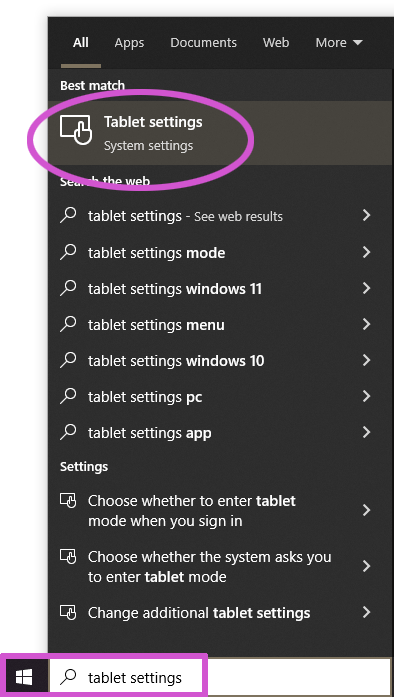
From the settings window that opens you should automatically be on the Tablet option from the left menu. Then set the When I sign in setting to Never use table mode.
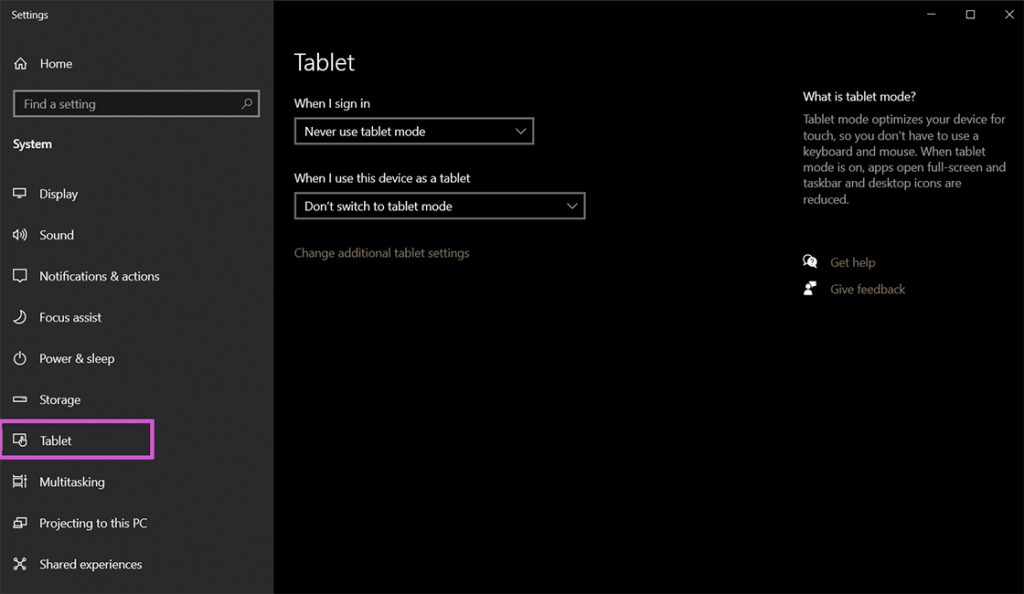
From the bottom of this menu click Change additional tablet settings and a new window should open like this:
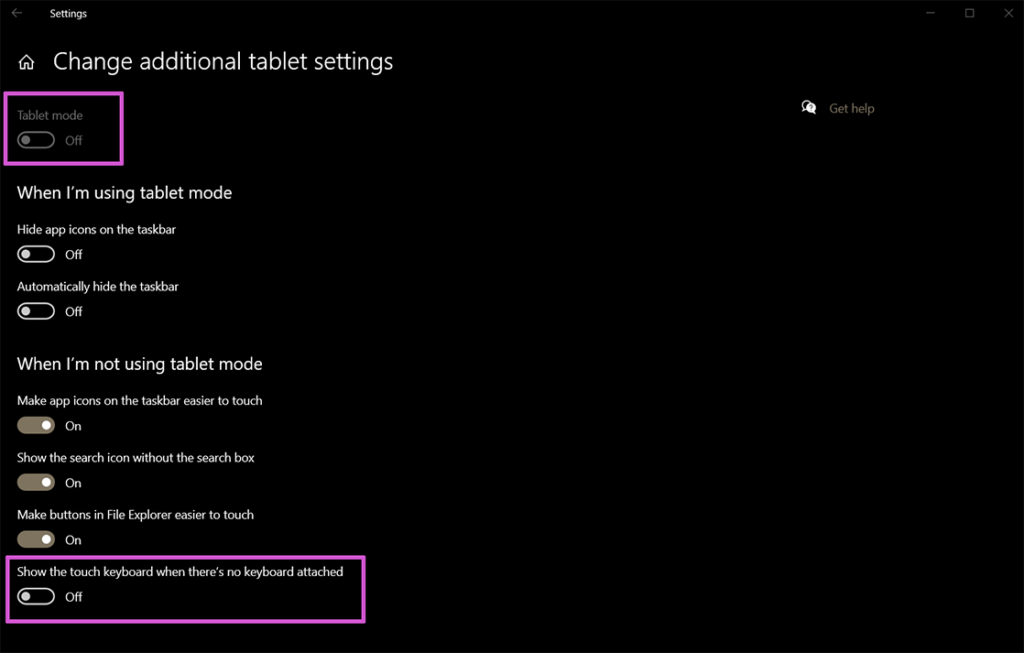
From this menu – Tablet mode should be Off and at the bottom make sure Show the touch keyboard when there’s no keyboard attached is set to Off as well.
Test your system to see if the problem is fixed.
2) On Screen Keyboard Settings
Like before, in the Search Bar next to the Windows Start Menu, type On Screen Keyboard and open that.
The On Screen Keyboard will open and from the bottom right, select Options
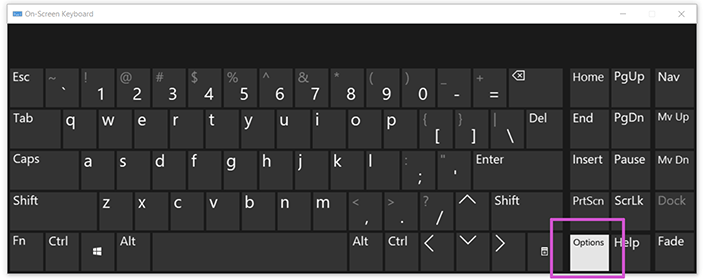
At the bottom of the new options window should be a button labeled Control whether the On-Screen Keyboard starts when I sign in
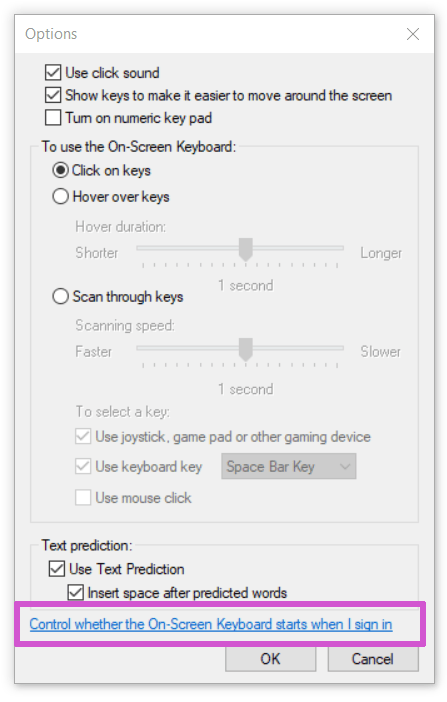
When you click this – yet another menu opens up. From here uncheck the option labeled Use On-Screen Keyboard
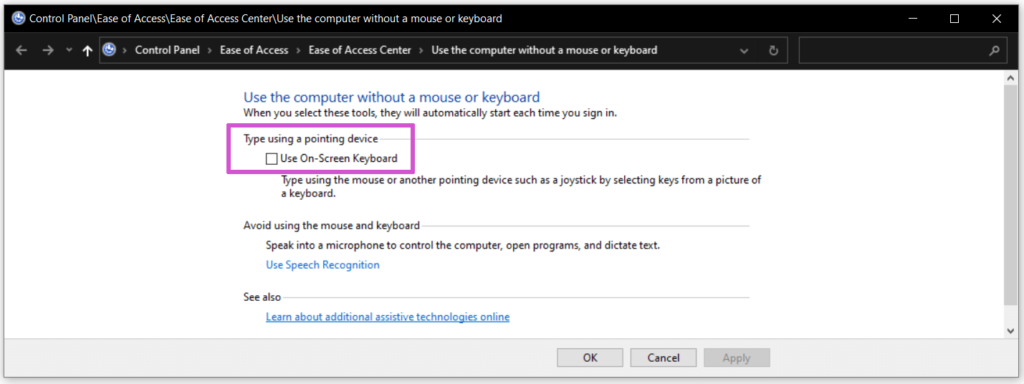
Check your computer to see if the On-Screen Keyboard is gone now.
3) Ease of Access Keyboard Settings
As before, in the Search Bar next to the Windows Start Menu, type Ease of Access Keyboard Settings and open that.
From the window that pops up you should automatically be on Keyboard on the left hand menu. Then under Use your device without a physical keyboard make sure Use the On-Screen Keyboard is set to Off.
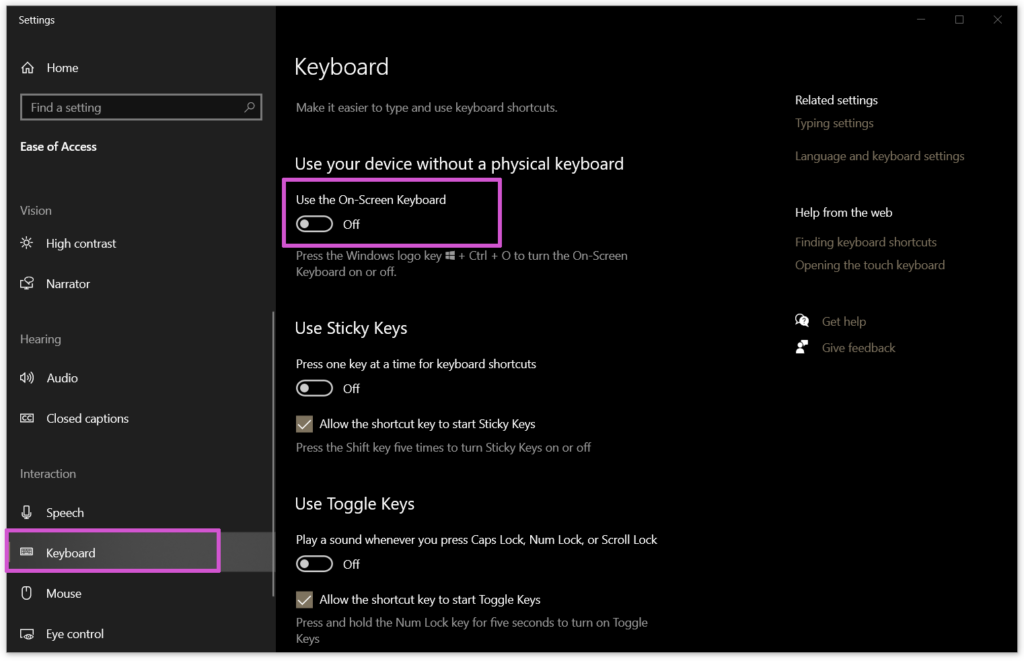
Check if the problem is solved.
4) Task Manager Startup – Disable
Open up the Windows Task Manager. You can do this by searching or just right click the task bar and select Task Manager.
In the Task Manager window click on the tab at the top that says Startup
Under the list of startup programs see if you have anything related to Tablets. This will be different depending on your device and drivers. The other thing you can look for is if your tablet brand shows up under the Publisher column.
For example we have TabletDriverCenter.exe showing up and the publisher is VEIKK as the brand of our current tablet.
If you find a program related to tablets – then right click and click Disable – that will stop it from running when you start your computer.
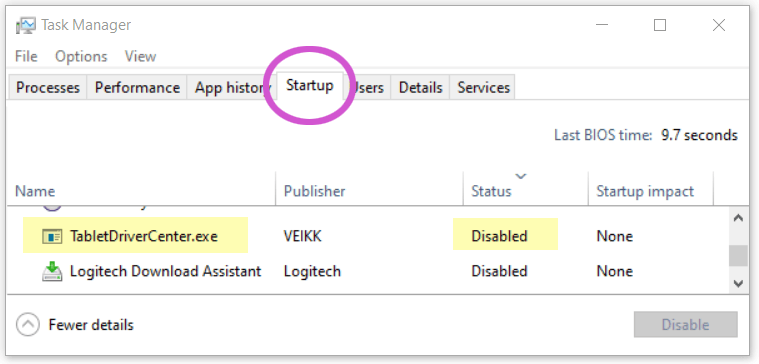
Time to check if we fixed the problem now.
5) Microsoft Services (Advanced Users Only)
If none of the previous steps solved your problem, and you’re still determined to stop the touch keyboard from appearing at startup, you can try these next 2 options.
Warning – this is only for people already comfortable with changing Windows Service Settings.
Open Services and scroll down to find: Touch Keyboard and Handwriting Panel Service according to Windows this Enables Touch Keyboard and Handwriting Panel pen and ink functionality.

Right click this and go to Properties from here you should be able to Stop it and also change the Startup type: to Disabled or Manual
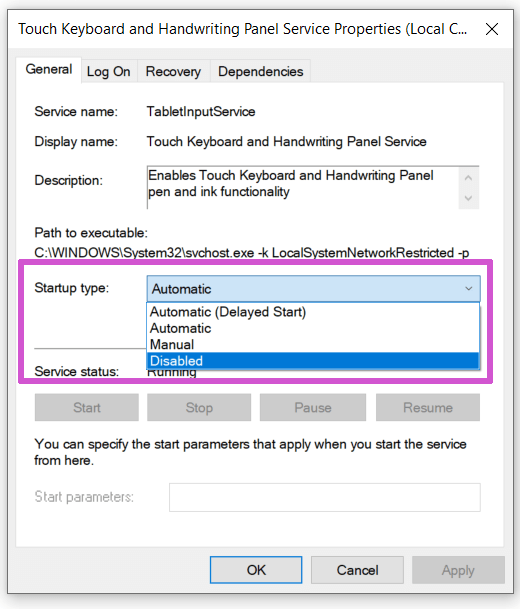
If you can’t stop the service for some reason you can try running the Command Prompt as an Administrator and using the following command to disable the Tablet Input Service:
sc config "TabletInputService" start= disabledTo enable the Tablet Input Service use this command:
sc config "TabletInputService" start= autoTest the solution out now.
6) Registry Editor (Advanced Users Only)
Warning (again) – this is only for people already comfortable with RegEdit modifications.
Desperate times call for desperate measures. Open the Registry Editor for Windows. Typing regedit into the searchbox is my favorite way.
From here navigate to:
Computer\HKEY_CURRENT_USER\SOFTWARE\Microsoft\Windows\CurrentVersion\Authentication\LogonUI
If you have an item named ShowTabletKeyboard you can try setting its value to 0 by right clicking the name and choosing Modify
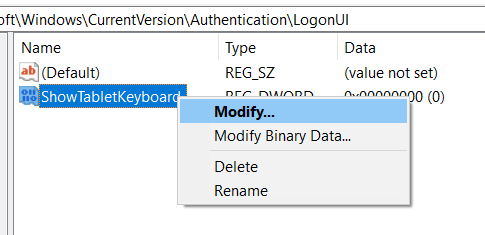
Set the Value Data: to 0
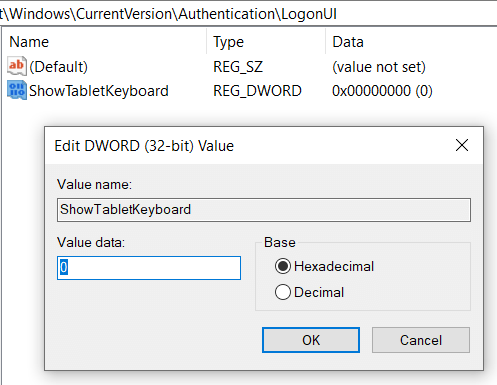
If you don’t have that key already, you can create it by:
Right click -> New -> DWord (32 bit) Value -> name it “ShowTabletKeyboard“
You should be left with a key with these details:
Name: ShowTabletKeyboard Type: REG_DWORD Data: 0x00000000 (0)

That’s all!
A big list of too many different ways to try and stop the Windows Touch Screen Keyboard or On-screen keyboard from opening when you are trying to log onto your computer. We hope it solved your problem!

Thanks for the info!